
Funding Opportunities
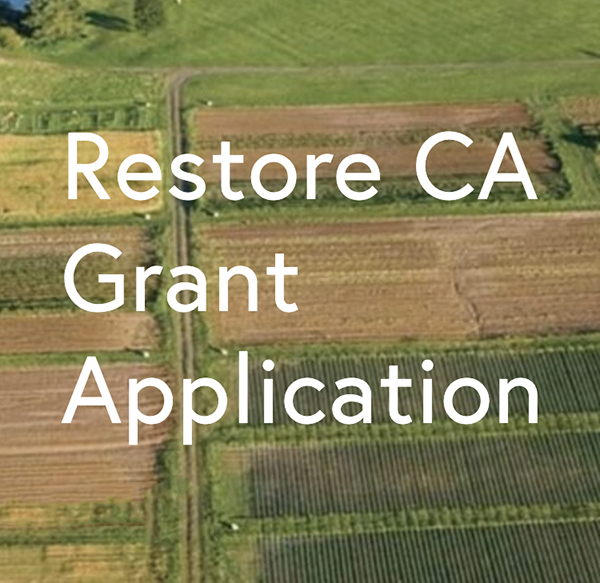 Funding for implementation of carbon farming practices is available through the Restore CA Program from Zero Foodprint (ZFP), a nonprofit organization mobilizing the food world around agricultural climate solutions. Funding is provided by ZFP members through crowd-funding. Producers can apply for up to $25,000 for practice implementation. Applicants are required to partner with a Technical Assistance Provider. Deadline for applications is April 22, 2021.
Funding for implementation of carbon farming practices is available through the Restore CA Program from Zero Foodprint (ZFP), a nonprofit organization mobilizing the food world around agricultural climate solutions. Funding is provided by ZFP members through crowd-funding. Producers can apply for up to $25,000 for practice implementation. Applicants are required to partner with a Technical Assistance Provider. Deadline for applications is April 22, 2021.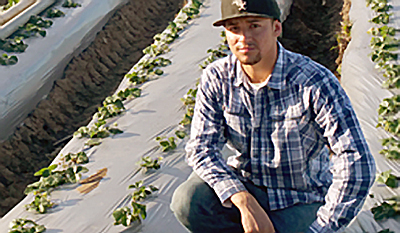 The CCOF Foundation offers grants of $5000 to higher education and vocational students pursuing degrees or certificates in organic agriculture to help with tuition and educational expenses.Applicants must be enrolled in an educational program in the United States that will benefit their career in organic agriculture, including vocational training/certificate programs, junior college/two-year degree programs, and bachelor’s/four-year undergraduate degrees. (Does not include graduate students.) Deadline for applications is May 14, 2021.
The CCOF Foundation offers grants of $5000 to higher education and vocational students pursuing degrees or certificates in organic agriculture to help with tuition and educational expenses.Applicants must be enrolled in an educational program in the United States that will benefit their career in organic agriculture, including vocational training/certificate programs, junior college/two-year degree programs, and bachelor’s/four-year undergraduate degrees. (Does not include graduate students.) Deadline for applications is May 14, 2021.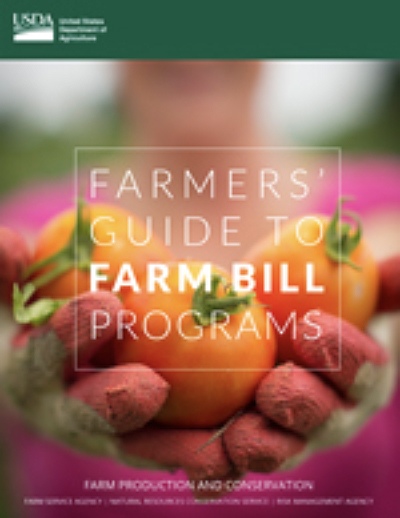 This brochure provides an at-a-glance view of all programs and assistance available to farmers and ranchers from FSA, NRCS and RMA, through the 2018 Farm Bill. It includes nine different loan programs for funding your operation, five opportunities to mitigate risk, ten for implementing conservation, and seven programs that provide funding to help recover from a natural disaster.
This brochure provides an at-a-glance view of all programs and assistance available to farmers and ranchers from FSA, NRCS and RMA, through the 2018 Farm Bill. It includes nine different loan programs for funding your operation, five opportunities to mitigate risk, ten for implementing conservation, and seven programs that provide funding to help recover from a natural disaster.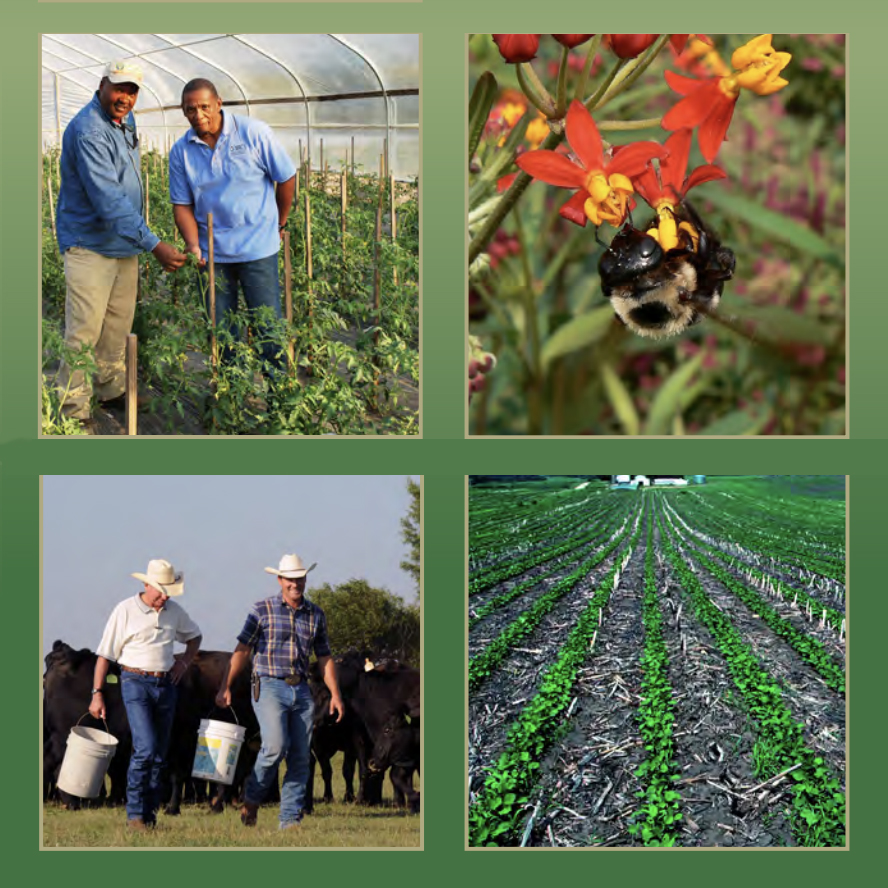 This free downloadable 101-page guide covers 62 government programs and has been updated to include program updates from the 2018 Farm Bill. Each program listing provides a description of the program’s available resources, information on how to apply, and in some cases, examples of how the funding has been used. The guide also includes basic information on how to design sound projects, find appropriate programs and write grant applications.
This free downloadable 101-page guide covers 62 government programs and has been updated to include program updates from the 2018 Farm Bill. Each program listing provides a description of the program’s available resources, information on how to apply, and in some cases, examples of how the funding has been used. The guide also includes basic information on how to design sound projects, find appropriate programs and write grant applications.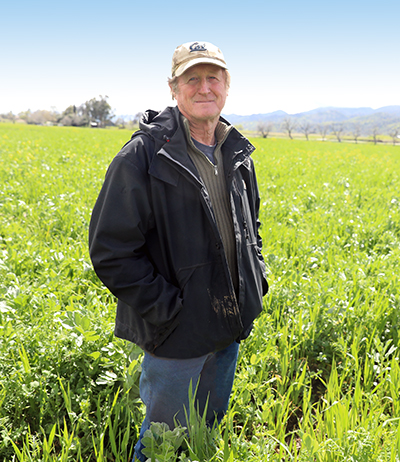 Conservation Innovation Grants (CIG) is a competitive program that supports the development of new tools, approaches, practices, and technologies to further natural resource conservation on private lands. Grants are available through both national and state CIG opportunities. The program also includes On-Farm Conservation Trials that several CRARS mentor-farmers participate in. These trials provide funding to support more widespread adoption of innovative approaches, practices and systems such as regenerative agriculture on working lands. On-Farm Trials projects feature collaboration between NRCS and partners to implement on-the-ground conservation activities and then evaluate their impact. Incentive payments are provided to producers to offset the risk of implementing these novel approaches.
Conservation Innovation Grants (CIG) is a competitive program that supports the development of new tools, approaches, practices, and technologies to further natural resource conservation on private lands. Grants are available through both national and state CIG opportunities. The program also includes On-Farm Conservation Trials that several CRARS mentor-farmers participate in. These trials provide funding to support more widespread adoption of innovative approaches, practices and systems such as regenerative agriculture on working lands. On-Farm Trials projects feature collaboration between NRCS and partners to implement on-the-ground conservation activities and then evaluate their impact. Incentive payments are provided to producers to offset the risk of implementing these novel approaches. The USDA and other federal agencies put together a number of programs this year providing aid to farmers coping with pandemic-related problems as well as for weather-related disaster relief and farm loans. You'll find a wealth of links on their farmers.gov coronavirus page.
The USDA and other federal agencies put together a number of programs this year providing aid to farmers coping with pandemic-related problems as well as for weather-related disaster relief and farm loans. You'll find a wealth of links on their farmers.gov coronavirus page.
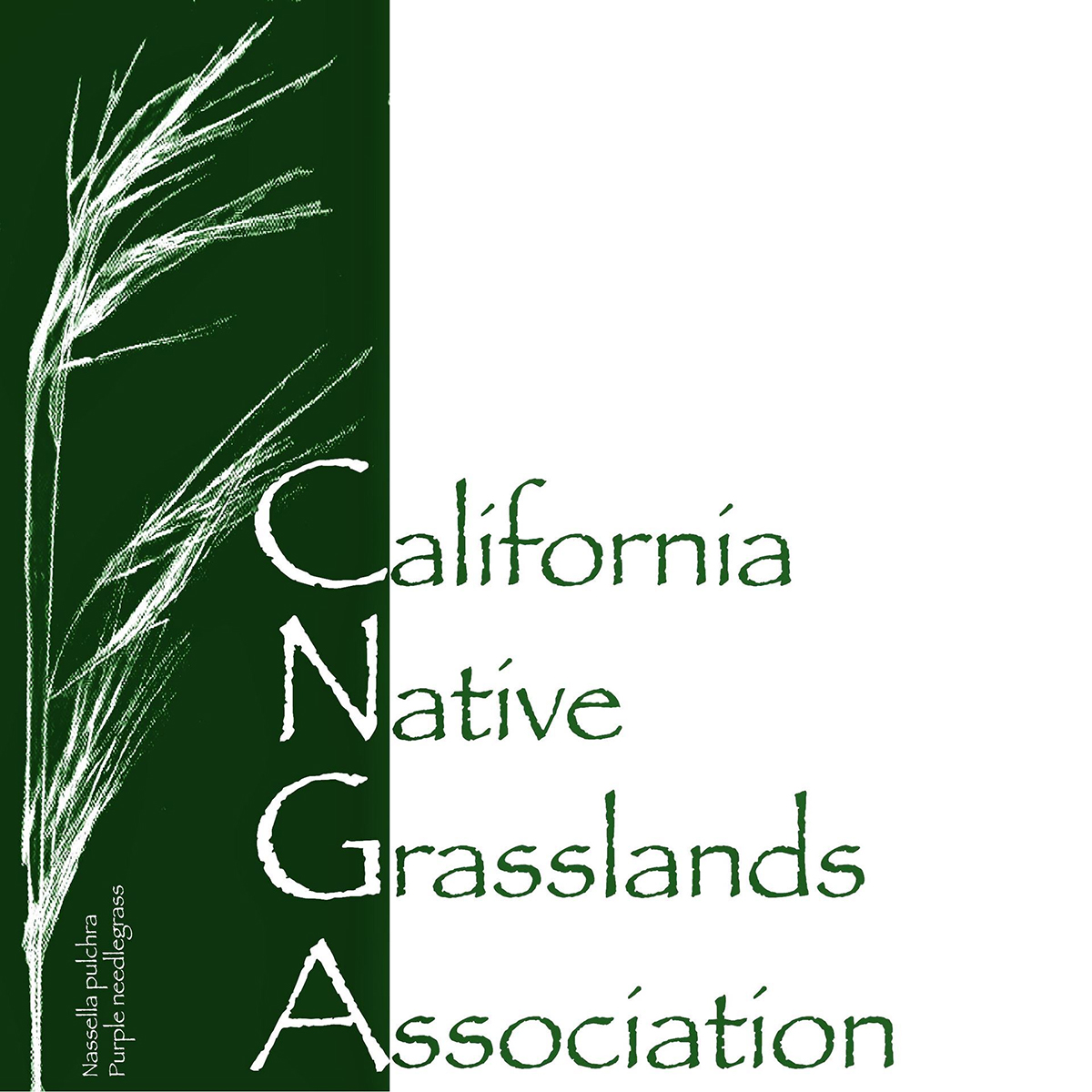 California Native Grasslands Association is offering competitive research funds to promote undergraduate and graduate student research focused on understanding, preserving, and restoring California’s native grassland ecosystems in accordance with their mission and goals. Students from any accredited college or university doing research within California may apply for a CNGA student research scholarship (home institution may be outside California). Application Deadline: January 31, 2021.
California Native Grasslands Association is offering competitive research funds to promote undergraduate and graduate student research focused on understanding, preserving, and restoring California’s native grassland ecosystems in accordance with their mission and goals. Students from any accredited college or university doing research within California may apply for a CNGA student research scholarship (home institution may be outside California). Application Deadline: January 31, 2021.
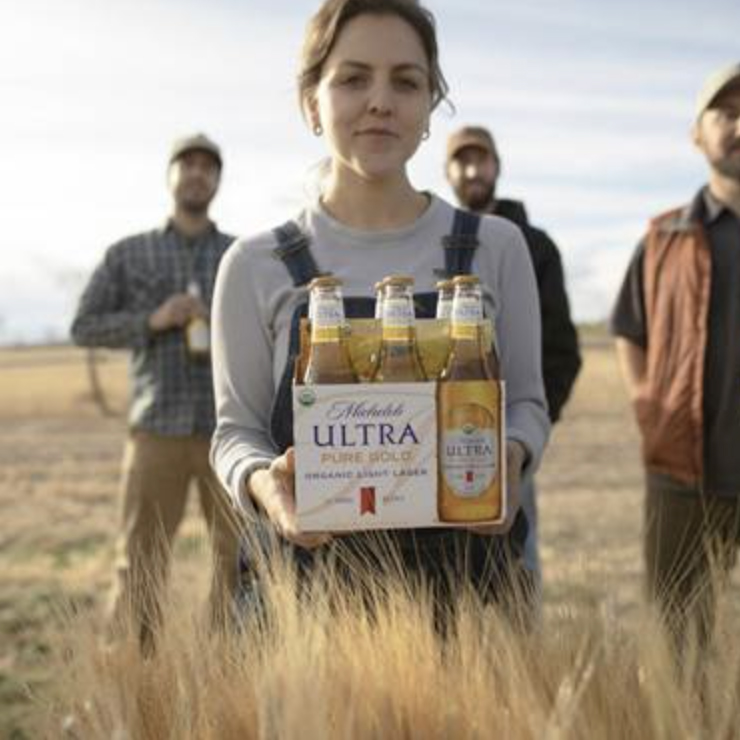 Want to transition your farm to organic? Or perhaps you’re already practicing organic methods and need that final incentive to get certified. CCOF is partnering with Anheuser Busch and their Michelob ULTRA Pure Gold Contract for Change program to provide financial support during the critical phase of becoming organic. They are looking for farmers who are committed to the full three-year transition. Priority will be applicants with a plan for transition to certified organic production, or those who have identified a means to develop a plan for how they will transition their farm. Applications are open until November 27, 2020.
Want to transition your farm to organic? Or perhaps you’re already practicing organic methods and need that final incentive to get certified. CCOF is partnering with Anheuser Busch and their Michelob ULTRA Pure Gold Contract for Change program to provide financial support during the critical phase of becoming organic. They are looking for farmers who are committed to the full three-year transition. Priority will be applicants with a plan for transition to certified organic production, or those who have identified a means to develop a plan for how they will transition their farm. Applications are open until November 27, 2020.
 One-year grants of up to $7,000 are available to fund pilot projects and research projects that support California’s farmers and ranchers and/or rural and urban communities to plan, implement, or evaluate sustainable agriculture or food systems strategies. Priority will be given to projects that benefit socially disadvantaged communities and/or socially disadvantaged farmers and ranchers. Eligible applicants include California-based farm or food system businesses and those affiliated with California non-profit, tax-exempt organizations, state and local government agencies, and California public and private institutions of higher education.
One-year grants of up to $7,000 are available to fund pilot projects and research projects that support California’s farmers and ranchers and/or rural and urban communities to plan, implement, or evaluate sustainable agriculture or food systems strategies. Priority will be given to projects that benefit socially disadvantaged communities and/or socially disadvantaged farmers and ranchers. Eligible applicants include California-based farm or food system businesses and those affiliated with California non-profit, tax-exempt organizations, state and local government agencies, and California public and private institutions of higher education.
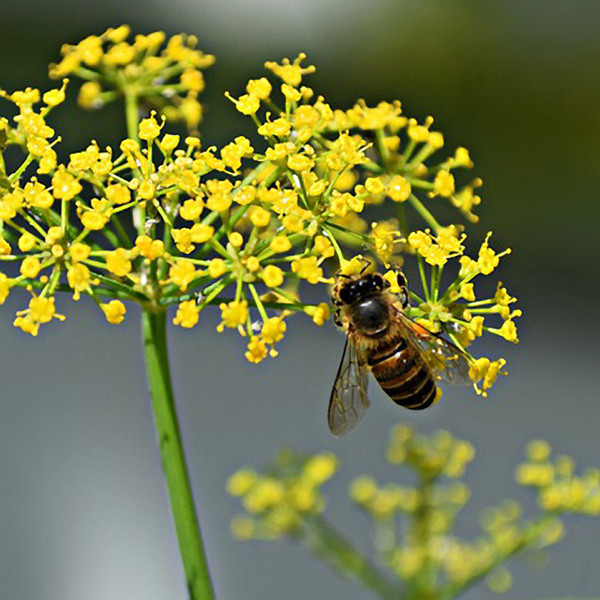 To support almond growers in planting pollinator habitat, the Almond Board has launched its Bee+ Scholarship, through which it will provide FREE cover crop seed to 100 almond growers through Project Apis m.’s Seeds for Bees program. The scholarship will also cover the cost for growers to register for the Bee Friendly Farming program.
To support almond growers in planting pollinator habitat, the Almond Board has launched its Bee+ Scholarship, through which it will provide FREE cover crop seed to 100 almond growers through Project Apis m.’s Seeds for Bees program. The scholarship will also cover the cost for growers to register for the Bee Friendly Farming program.  The National Young Farmers Coalition is partnering with Chipotle to provide $5000 grants to help 50 young and beginning farmers and ranchers per year start up and grow their businesses. Funds can be used for any related cost including new equipment, operating costs such as seeds and compost, building new infrastructure, attending a farmer training program, hiring additional farm labor, or covering personal finances that stand in the way of farm success such as childcare, housing, or student loan payments.
The National Young Farmers Coalition is partnering with Chipotle to provide $5000 grants to help 50 young and beginning farmers and ranchers per year start up and grow their businesses. Funds can be used for any related cost including new equipment, operating costs such as seeds and compost, building new infrastructure, attending a farmer training program, hiring additional farm labor, or covering personal finances that stand in the way of farm success such as childcare, housing, or student loan payments.
 The Carl Moyer Memorial Air Quality Standards Attainment Program is a voluntary grant program for California farmers that choose to reduce air pollution, primarily from diesel vehicles and equipment. It provides incentive funds to purchase cleaner-than-required engines and equipment. The Carl Moyer Program is implemented as a partnership between CARB and California’s 35 local air districts. These cost-share grant programs generally require the destruction of an older polluting engine and replacing it with the least polluting equipment available.
The Carl Moyer Memorial Air Quality Standards Attainment Program is a voluntary grant program for California farmers that choose to reduce air pollution, primarily from diesel vehicles and equipment. It provides incentive funds to purchase cleaner-than-required engines and equipment. The Carl Moyer Program is implemented as a partnership between CARB and California’s 35 local air districts. These cost-share grant programs generally require the destruction of an older polluting engine and replacing it with the least polluting equipment available.
 The Glenn County Air Pollution Control District provides grant funding to local growers who want to upgrade their older diesel powered farming equipment to newer and cleaner technologies. All projects are ranked based on project cost per amount of air pollutants reduced. The District will select the most cost effective projects until all project funds have been allocated. Projects will typically receive funding for up to 50% of the eligible costs of the new equipment.
The Glenn County Air Pollution Control District provides grant funding to local growers who want to upgrade their older diesel powered farming equipment to newer and cleaner technologies. All projects are ranked based on project cost per amount of air pollutants reduced. The District will select the most cost effective projects until all project funds have been allocated. Projects will typically receive funding for up to 50% of the eligible costs of the new equipment.
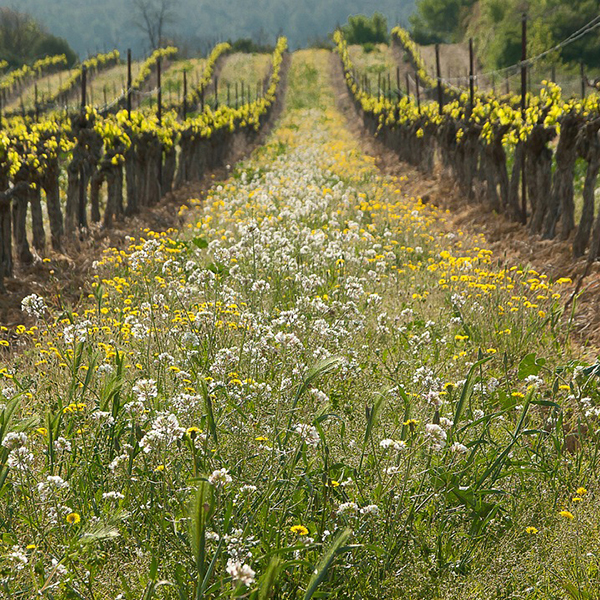 The HSP Incentives Program provides financial assistance for implementation of conservation management that improves soil health, sequester carbon and reduce greenhouse gas (GHG) emissions. Demonstration Projects showcase farmers and rancher implementation of HSP practices.
The HSP Incentives Program provides financial assistance for implementation of conservation management that improves soil health, sequester carbon and reduce greenhouse gas (GHG) emissions. Demonstration Projects showcase farmers and rancher implementation of HSP practices.
 Move over to non-digester management practices that reduce methane emissions from dairy and livestock operations. Receive up to $750,000 in funding, up to 100% of project cost.
Move over to non-digester management practices that reduce methane emissions from dairy and livestock operations. Receive up to $750,000 in funding, up to 100% of project cost.
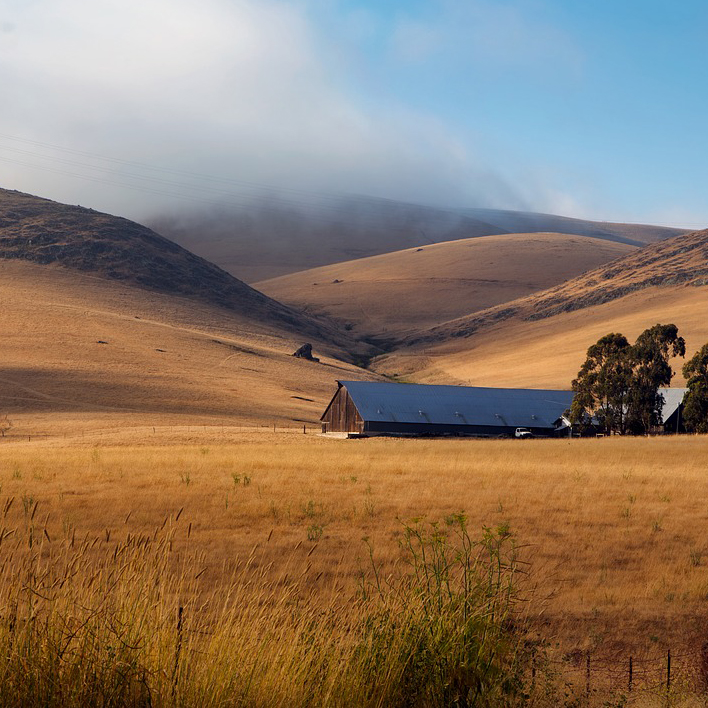 This program through the U.S. Department of Agriculture’s Natural Resources Conservation Services (NRCS) provides financial and technical assistance to agricultural producers to help them address natural resource concerns and deliver environmental benefits such as improved water and air quality, conserved ground and surface water, reduced soil erosion and sedimentation or improved or created wildlife habitat.
This program through the U.S. Department of Agriculture’s Natural Resources Conservation Services (NRCS) provides financial and technical assistance to agricultural producers to help them address natural resource concerns and deliver environmental benefits such as improved water and air quality, conserved ground and surface water, reduced soil erosion and sedimentation or improved or created wildlife habitat.
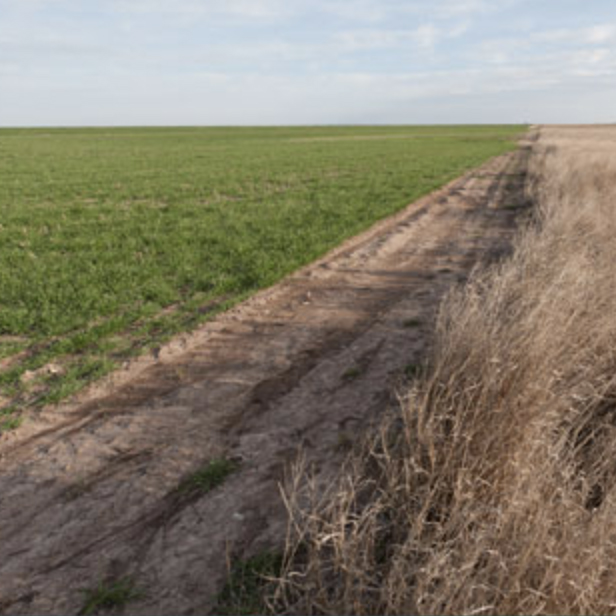 This program through the U.S. Department of Agriculture’s Natural Resources Conservation Services (NRCS) helps agricultural producers maintain and improve their existing conservation systems and adopt additional conservation activities to address priority resources concerns. Participants earn CSP payments for conservation performance.
This program through the U.S. Department of Agriculture’s Natural Resources Conservation Services (NRCS) helps agricultural producers maintain and improve their existing conservation systems and adopt additional conservation activities to address priority resources concerns. Participants earn CSP payments for conservation performance.
 This program through the U.S. Department of Agriculture’s Farm Service Agency (FSA) provides financial assistance to producers of noninsurable crops to protect against natural disasters that result in lower yields or crop losses, or prevents crop planting.
This program through the U.S. Department of Agriculture’s Farm Service Agency (FSA) provides financial assistance to producers of noninsurable crops to protect against natural disasters that result in lower yields or crop losses, or prevents crop planting.
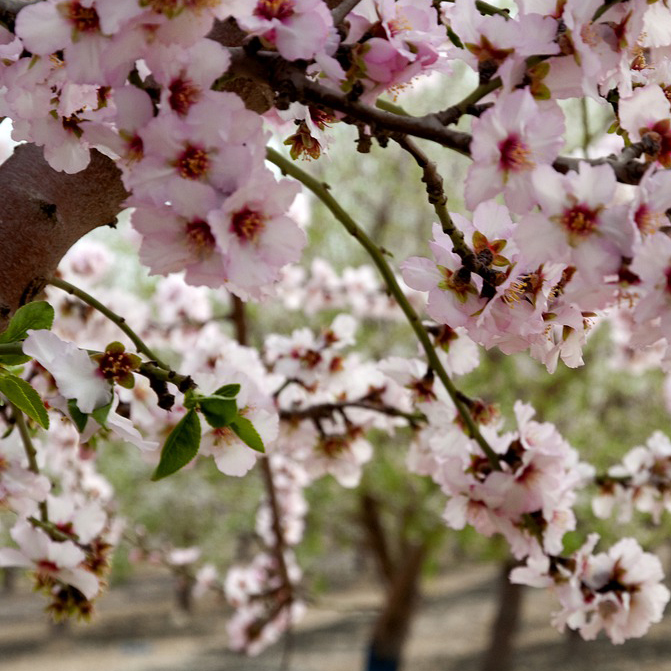 This program through the U.S. Department of Agriculture’s Farm Service Agency (FSA) provides financial assistance to qualifying orchardists and nursery tree growers to replant or rehabilitate eligible trees, bushes and vines damaged by natural disasters.
This program through the U.S. Department of Agriculture’s Farm Service Agency (FSA) provides financial assistance to qualifying orchardists and nursery tree growers to replant or rehabilitate eligible trees, bushes and vines damaged by natural disasters.
 This program through the U.S. Department of Agriculture’s Farm Service Agency (FSA) offer low-interest loans to new farmers unable to obtain commercial financing as well as loans for small to mid-sized family farm operations for land, equipment and operating costs as well as direct loans for cold storage, bulk tanks and handling equipment.
This program through the U.S. Department of Agriculture’s Farm Service Agency (FSA) offer low-interest loans to new farmers unable to obtain commercial financing as well as loans for small to mid-sized family farm operations for land, equipment and operating costs as well as direct loans for cold storage, bulk tanks and handling equipment.
